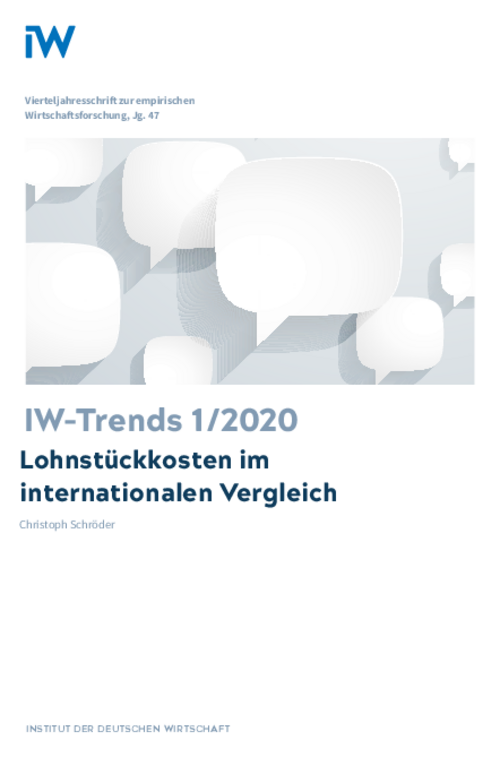German manufacturing industry has high unit labor costs by international standards. In 2018 they were 15 per cent higher than in the 27 countries in our comparison.

An International Comparison of Unit Labor Costs
IW-Trends

German manufacturing industry has high unit labor costs by international standards. In 2018 they were 15 per cent higher than in the 27 countries in our comparison.
Compared with the Eurozone the cost disadvantage was 9 per cent. Germany’s above-average productivity proved insufficient to compensate for the high labour costs. From 1999 to 2018, the period under review, unit labour costs in German industry remained constant – as they did overall in the other countries surveyed. Compared to the Eurozone, the German unit labour cost position improved by 6.5 per cent between 1999 and 2018, though this was solely due to the favourable development up to 2007, the year before the international finance crisis. After a period of considerable volatility, between 2013 and 2018 it remained almost constant and roughly in line with the long-term average. However, Germany’s position deteriorated considerably again in 2019, with unit labour costs rising by 6.6 per cent in the first three quarters compared with the same period of the previous year. By contrast, in both the Eurozone and the IW’s comparator group of 27 countries, the increase was just under 3 per cent. This means that, in relation to the Eurozone, Germany's unit labour cost position is currently at its worst since 2002 and only 3 per cent more favourable than in 1999. With the economy weak and no prospect of an improvement in productivity, the scope for wage increases has become very limited.

Christoph Schröder: Lohnstückkosten im internationalen Vergleich
IW-Trends

More on the topic

Determinants of personnel planning in Germany
The German labor market has been growing since 2005. The dip in the wake of the coronavirus pandemic between 2020 and 2022 is an exception, as the German labor market has reached a record level of 45.9 million people in employment by 2023.
IW
What factors influence the career ambitions of people with disabilities?
Many companies in Germany report having difficulties not only in recruiting employees, but also in filling vacant management positions.
IW